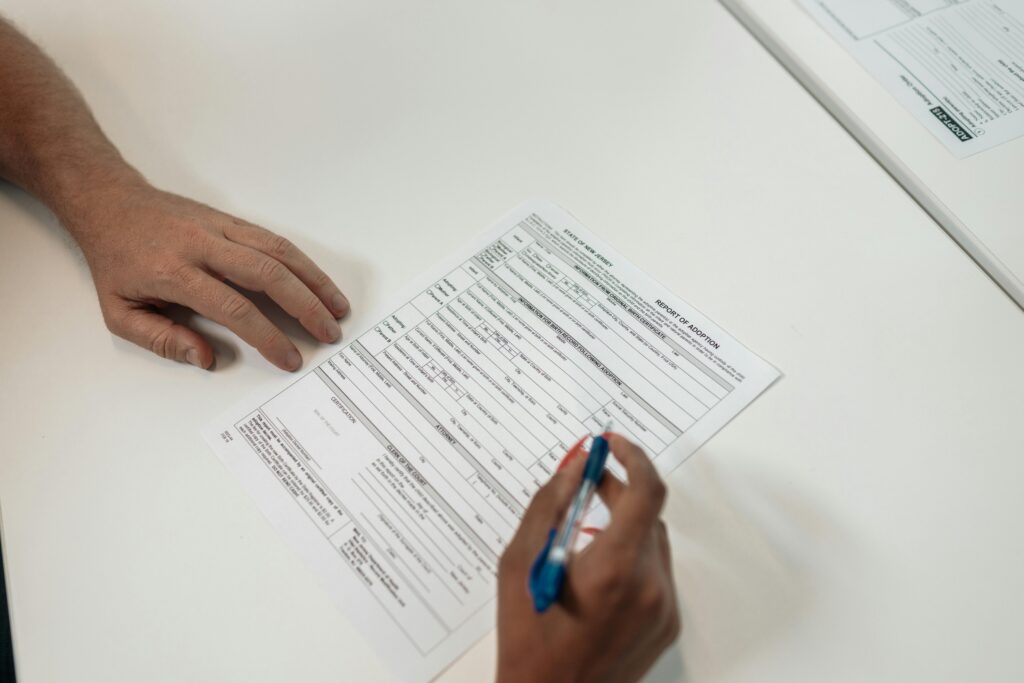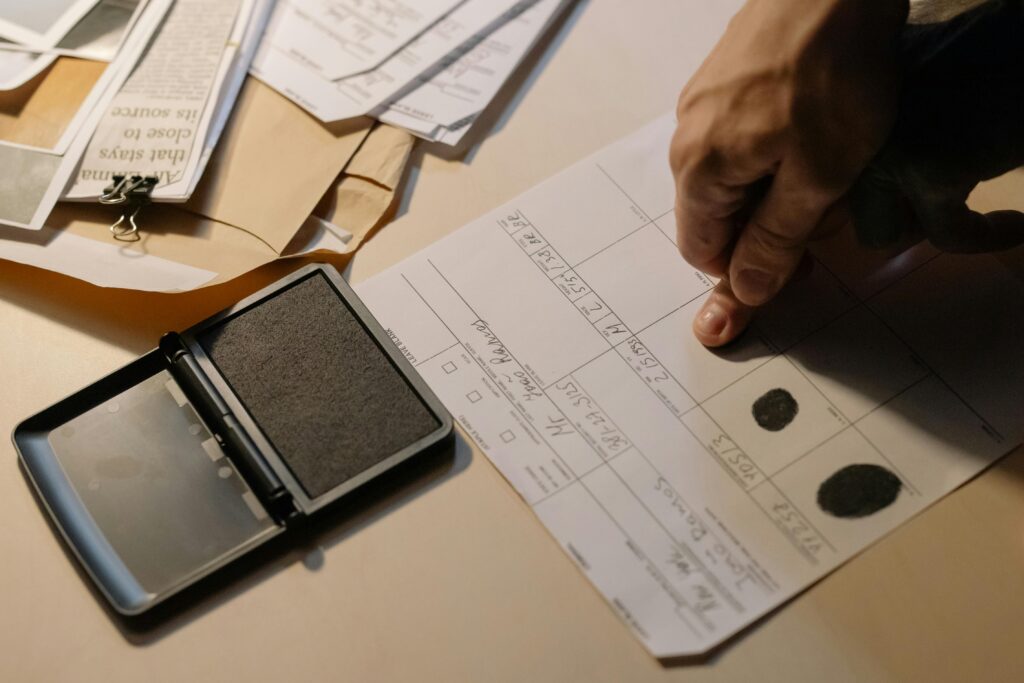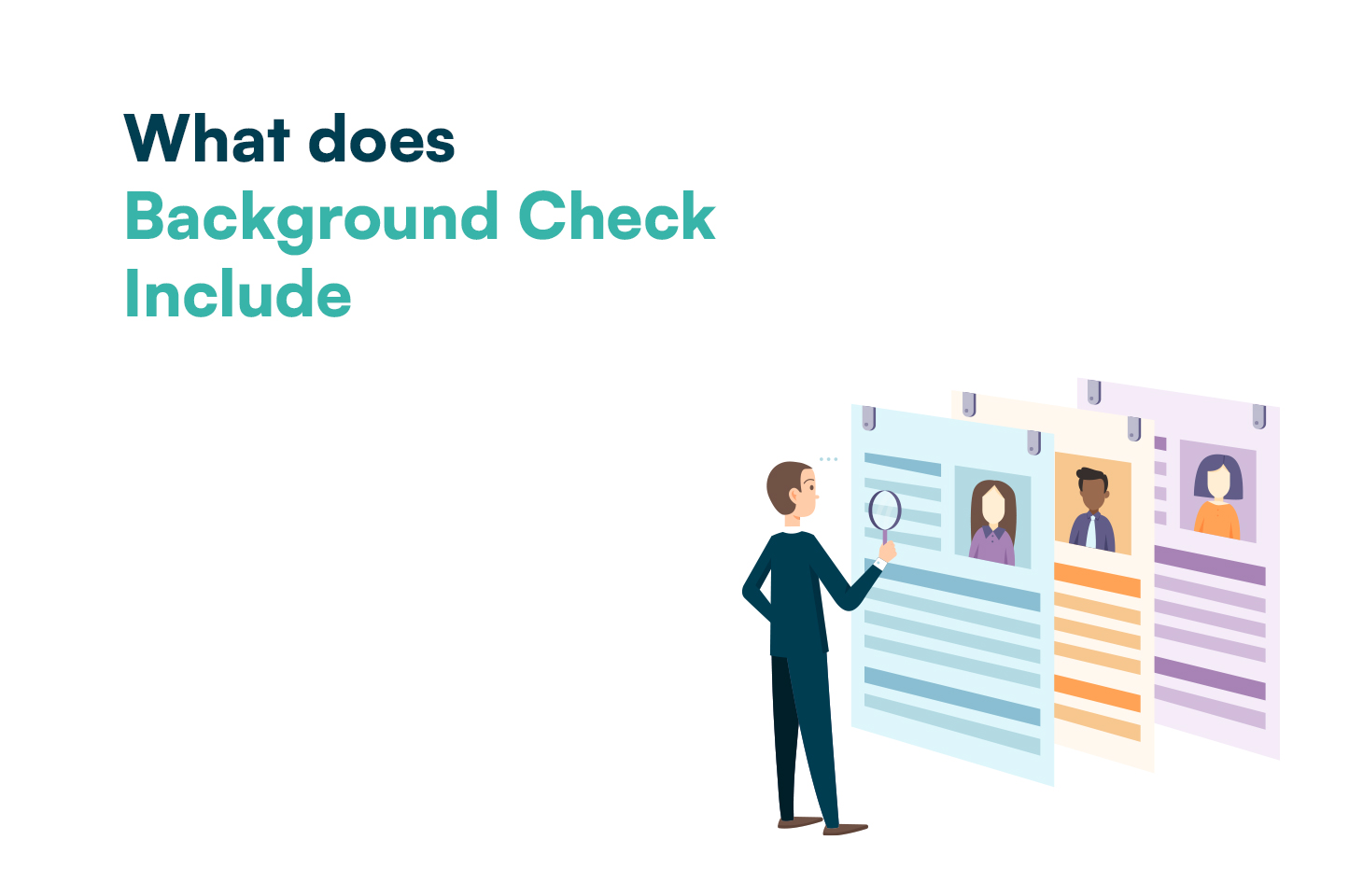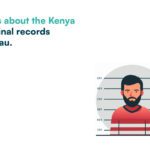A professional background check is a comprehensive process used by employers, landlords, and security professionals to verify a person’s identity, criminal history, employment, education, financial standing, and other relevant screenings. This ensures that candidates or tenants have provided accurate information and pose no hidden risk. The process typically involves multiple layers of verification to create a complete picture of an individual’s past and present. Each aspect of a background check is designed to confirm critical details that support informed decision-making in compliance and fraud prevention. In the sections below, you will explore the various components that constitute professional background checks.
A Comprehensive List of What is Included in a Background Check is;
Before going through the list, it is important to know that background checks can vary by country and institution. Most institution customise their background checks to what’s most important for their operations.
Bio Data Identity Verification

It is essential to verify that the individual’s identity matches the application details and legal documents. Confirming identity helps ensure that records are correctly attributed and prevents identity theft or fraud during screening processes.
The national identity numbers (or any other similar option) are a vital identifier used to trace an individual’s records. By running an identity check, professionals can verify if the ID number is valid, has been issued properly, and matches the applicant’s name. This step detects inconsistencies that might indicate fraudulent activity or identity misuse, which is crucial in high-stakes screenings such as tenant reviews or pre-employment checks.
Address History Verification
Address history verification involves checking an individual’s past residences over multiple years. This process confirms stability, helps identify discrepancies in the information provided, and can reveal potential issues such as unaddressed legal matters associated with certain locations. Using public and proprietary databases, investigators match the reported addresses with official records.
Name Verification and Alias Check
Verifying an individual’s name against various databases is critical in identifying any alias or name changes that might have occurred. This method helps to track down records that might otherwise be hidden under a different identity. By cross-referencing with government and financial records, the process ensures that the name provided is consistently used and accurate across all documentation.
Local, State, and Federal Criminal Searches

Criminal searches are conducted on multiple levels, including county, state, and federal jurisdictions. Each level may hold different information regarding arrests, convictions, or pending cases. Such a multilayered approach ensures that no significant record is overlooked and helps in painting a full picture of the individual’s legal background. Criminal history records serve as a key filter in background checks to assess potential risks. Comprehensive criminal checks help to ensure that a candidate or tenant does not have a history that could pose a danger or lead to organisational liability. Various databases are used to compile an individual’s criminal history, ensuring a thorough review.
Criminal databases are essential to capture any records not available at the local level. These databases compile information from across the country and help in identifying individuals with records in different states or under federal scrutiny. This cross-jurisdictional check increases the accuracy and thoroughness of the background verification process.
Sex Offender Registry Check
An essential part of any criminal background check is the review of sex offender registries. This step confirms whether the individual is listed on any registry, which is especially critical for positions involving vulnerable populations or high-security environments. Immediate access to such information helps protect organisations and the public.
Reportable Criminal Offences
Not all offences are considered reportable under relevant laws. It is important to understand which offences must be reported and how they can impact hiring or leasing decisions. Compliance with these standards ensures that background checks are conducted ethically and legally.
Validating Employment History

Validating employment history is crucial in ensuring that applicants have the skills, experience, and reliability they claim. This section explains how employers verify past work and assess an applicant’s professional background.
Confirmation of Previous Employers
Employment history validation includes contacting previous employers to confirm job titles and dates of employment. Verifying this information can reveal any significant discrepancies or gaps in the work history, which may be a red flag in the screening process.
Verification of Job Titles and Dates of Employment
Beyond confirming the existence of past roles, it is important to verify that the job titles accurately reflect the responsibilities held by the applicant. This information aids in assessing whether the candidate’s experience matches the job requirements and adds credibility to their professional background.
Reasons for Leaving Previous Positions (Where Permissible)
In some cases, understanding why an individual left a previous job is as important as confirming their employment details. When permissible by law, this additional step provides further insights into the candidate’s professional behaviour, work ethic, and potential areas of concern, such as frequent job changes.
Authenticating Educational Credentials in a Background Check

Verifying educational credentials is another critical component in a professional background check. This step establishes that the applicant holds the degrees and certifications they claim, which is particularly important for roles that require advanced knowledge or specific technical skills.
Verification of Degrees and Diplomas
Educational background validation often entails contacting institutions directly or using third-party verification services to ensure that the degrees or diplomas presented are genuine. This verification process minimises the risk of misrepresentation and protects the organisation from potential fraud.
Confirmation of Attendance Dates
Not only is it important to confirm that the applicant attended the institution, but it is also necessary to verify the attendance dates. Accurately determining the period of study ensures that the credentials match the individual’s claimed work experience and professional timeline.
Accreditation Status of Institutions
The accreditation status of an educational institution is a key indicator of the quality of education provided. Verifying that the institution is accredited by the appropriate regional or national bodies adds an extra layer of assurance regarding the legitimacy and relevance of the credentials.
Assessing Financial Standing With a Credit Background Check

A financial background check is a critical tool for assessing an individual’s creditworthiness and overall financial responsibility. This is particularly important when screening tenants or potential employees in roles that require handling of financial resources.
Credit reports are reviewed to assess an individual’s financial stability and history. They include details such as outstanding debts, repayment history, and overall credit score. These reports help determine whether the individual is financially responsible and capable of meeting future obligations.
Adhering to the Fair Credit Reporting Act (FCRA) is essential when performing credit checks. This ensures that all credit-related inquiries are conducted legally and that the individual’s rights are respected throughout the process. FCRA compliance minimises potential legal risks for the screening organisation.
Identifying Bankruptcies, Liens, and Judgments
In addition to the general credit report, specialised searches focus on bankruptcies, liens, and judgments. These indicators can highlight significant financial distress or unresolved fiscal issues that might be relevant for certain job positions or when renting property.
Other Relevant Screenings in a Professional Background Check
Other relevant screenings are conducted to cover aspects that might not be directly captured by identity, criminal, employment, education, and credit checks. These additional screenings ensure a holistic view of the individual’s background.
Motor Vehicle Records and Driving History
For positions that involve driving or operating heavy machinery, verifying the applicant’s motor vehicle records is necessary. These records reveal any past traffic violations, accidents, or suspensions and ensure that the applicant meets the safety standards required for the role.
Professional License Verification
If the job requires specific professional licenses, this section verifies that all declared licenses are valid and current. Cross-checking with licensing boards ensures that the individual is legally recognised in their stated profession and in good standing.
Reference Checks From Previous Supervisors
Reference checks provide invaluable insights into an applicant’s work habits, ethics, and performance. By speaking with previous supervisors, background screening professionals can assess whether the candidate consistently met job expectations and behaved in a manner conducive to a positive work environment.
Drug Screening Processes
Drug screening is an integral part of the background check process, particularly in industries where safety is a primary concern. Testing for controlled substances ensures that the applicant is not at risk of impairing their performance or jeopardising the organisation’s safety standards.
Civil Court Record Searches
Finally, searches of civil court records are conducted to identify any lawsuits, disputes, or legal actions involving the individual. Civil records may reveal information about contractual issues, personal liability, or other matters that could impact the decision-making process when considering the applicant for employment or tenancy.
Frequently Asked Questions
Q: How does a professional background check help prevent fraud? A: A professional background check helps prevent fraud by verifying identities, checking criminal records, and confirming employment and educational histories. This process ensures that individuals are who they claim to be and that there are no hidden issues that could lead to fraudulent activities.
Q: What databases are typically used for criminal history checks? A: Criminal history checks commonly utilise county, state, and federal databases, as well as national criminal databases. These systems are designed to capture a comprehensive snapshot of an individual’s legal history, including any pending charges or convictions.
Q: Why is verifying employment history important in background checks? A: Verifying employment history is important because it confirms that a candidate has the experience and skills they claim to possess. It helps employers ensure that past roles align with the job requirements and uncovers any discrepancies that could be red flags during the hiring process.
Q: How do credit checks fit into the background screening process? A: Credit checks provide insights into an individual’s financial responsibility and history. Reviewing credit reports, identifying bankruptcies, and ensuring FCRA compliance help organisations gauge the financial stability of candidates or tenants, which is crucial in roles involving financial management or in tenancy screening.
Q: Can additional screenings be customized for different industries? A: Yes, additional screenings such as motor vehicle records, professional license verifications, and drug testing can be customised based on the specific requirements of an industry or role. These specialised checks help tailor the background check process to address particular risks and regulatory needs.
| Screening Aspect | Key Component | Benefit |
|---|---|---|
| Identity Verification | National ID, Address, Name Checks | Prevents identity fraud and ensures accurate data |
| Criminal History Review | Multi-level Searches, Sex Offender Checks | Mitigates risk by identifying potential legal issues |
| Employment and Education Checks | Verification of previous roles and credentials | Confirms qualifications and reduces misrepresentation |
The table above summarises the key components of various background screening processes and their corresponding benefits, highlighting how each step contributes to a thorough evaluation.







